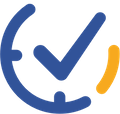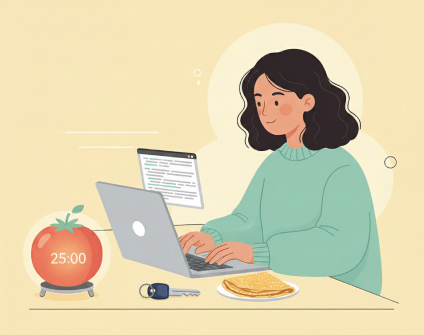Maximizing productivity isn’t about working non-stop—it’s about working smart. While conventional wisdom might suggest that grinding away without pause is the key to success, scientific research paints a different picture. Taking regular breaks isn’t just a luxury or a sign of weakness; it’s a powerful strategy for boosting productivity and maintaining peak performance over the long haul. Let’s explore the fascinating science behind why breaks are so beneficial and how you can leverage them to supercharge your workday.
The Neuroscience of Focus and Fatigue
Our brains are incredible organs, but they’re not designed for non-stop work. When we focus intensely on a task, our prefrontal cortex—the area responsible for complex thinking and decision-making—becomes highly active. This process is fueled by the release of dopamine, a neurotransmitter that promotes feelings of pleasure and satisfaction.
However, this intense focus comes at a cost. Dr. David Rock, director of the NeuroLeadership Institute, explains in his book *Your Brain at Work* that our neural resources are limited. He highlights that our ability to make decisions and maintain focus is a finite resource that can become depleted with overuse.
As we work, our cognitive resources gradually deplete, leading to a phenomenon known as “attention fatigue.” This depletion can significantly impact our productivity and decision-making abilities. Strategic breaks are essential to help manage this fatigue and restore our mental energy. Taking regular breaks can reset our mental state, enhance our focus, and ultimately maintain high performance throughout the day.

Stress Reduction and Creativity Boost
Regular breaks are essential not only for maintaining focus but also for managing stress and Improving creativity. Dr. Sabine Sonnentag, a professor of organizational psychology at the University of Mannheim, has extensively researched the importance of breaks and recovery from work stress. Her studies indicate that employees who take regular breaks have more energy, are more engaged with their work, and are better able to come up with creative solutions to problems.
Research published in various psychological and occupational health journals supports the idea that breaks are crucial for overall well-being. For instance, studies show that brief diversions from tasks can significantly improve one’s ability to focus for prolonged periods and reduce the likelihood of burnout. Taking breaks can also facilitate mental recovery, leading to higher levels of job satisfaction and productivity.
Effective Break Strategies
Now that we understand the importance of breaks, how can we make the most of them? Here are some tips:
1. Take micro-breaks: Even brief 30-second to 5-minute breaks can help refresh your mind. Stand up, stretch, or look out the window.
2. Practice mindfulness: A study found that mindfulness exercises during breaks can significantly reduce stress and improve job satisfaction.
3. Get moving: Physical activity, even a short walk, can increase blood flow to the brain and boost cognitive function.
4. Connect with nature: Research published in the Journal of Environmental Psychology shows that exposure to natural environments can improve attention and cognitive performance.
5. Engage in a different task: Switching to a less demanding activity can give your prefrontal cortex a chance to recover.

Regular breaks are not just beneficial; they’re essential for maintaining high productivity and creativity in the long run. By understanding the neuroscience behind focus and fatigue, and implementing effective break strategies, you can transform your workday and achieve more with less stress. So, the next time you feel guilty about stepping away from your desk, remember that you’re not slacking off—you’re strategically recharging for peak performance. Your brain will thank you for it!




